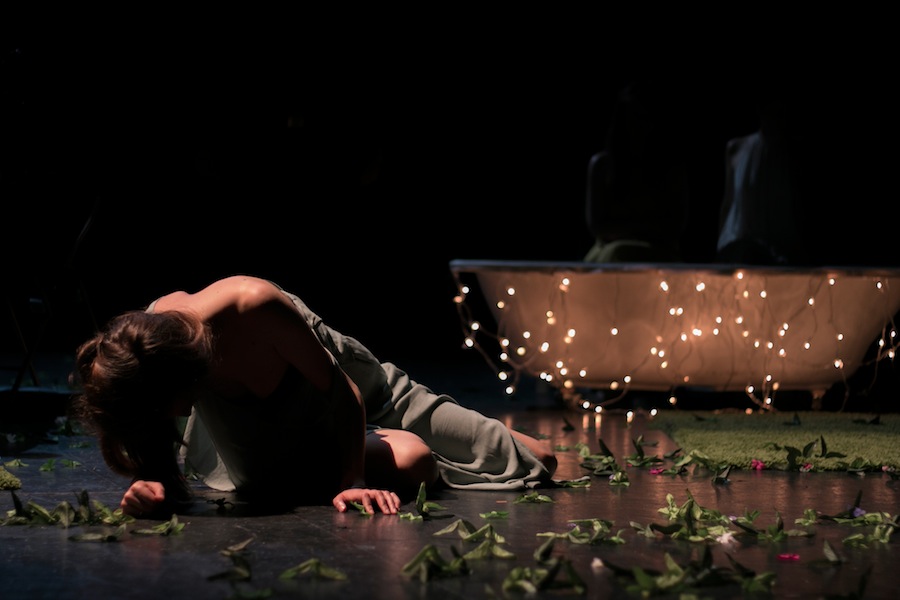
An intimist and promising Pelléas et Mélisande in Paris
29/06/2016 - La Lettre du Musicien - Philippe Carbonnel
The work by Debussy is given at the Étoile du Nord theatre (Paris, 18thdistrict) in a shorter and reduced adaptation for chamber orchestra by Annelies Van Parys. The production exclusively brings young professionals together with a charming result.
As dictated by the cuts made here and there, this version lasts for two hours. If we obviously particularly miss the disappearance of some pages like those of the cave, we are, however, wary of shouting too categorically that we have been betrayed by keeping in mind that Maeterlinck himself gave carte blanche to Debussy to freely make some cuts and cut again.
On a pared down stage, only just accessorised with a few touches of an ethereal romanticism, the staging by Camille Doucet captures part of the ambiguity of the story by judiciously maintaining a permanent flow between an equivocal tale, a confused dream-like nature and dangerous game of these curious “enfants terribles”. A few mistakes punctuate the show, still slightly new (pointless lines spoken into an incongruous microphone), but it is also punctuated by scenes with the right evocative tone, such as Mélisande, fresh and provocative, perched on her ladder of flowers by way of a tower, then dying confined to her bath, encircled with light. Vacillating between evanescence and violence of feelings, it is first and foremost an intimist look that leaves, probably wisely, the symbolist dimension in the middle distance.
To create the climate favourable to this reading, scaling it down for a chamber orchestra proves, paradoxically, to be a constraint. The orchestral fabric, exposed, loses its evasive halo, the colours stand out more distinctly and the harmonies are less mysterious. Under Victor Jacob’s clear conductor’s baton, scrupulously attentive to the balance, the orchestra struggles a little with the undulations in the first act but also offers beautiful nervous palpitations at the end of the third act and the abandoned luxuriance that suits the conclusion of the fourth act.
The production brings together young voices in the French language, with excellent diction, tackling with great success the peculiar prosody of this score. Among the main roles, one stands out in particular, that of the staggering talent of the mezzo Victoire Bunel, a perfect Mélisande, troubling and elusive: amplitude and richness of timbre, impeccable technique and intoxicating musicality, everything is there. She forms a vocally well-matched couple with her partner, the tenor Martial Pauliat, with a fine ardent and radiant voice, who makes a passionate and touching Pelléas. In the room, the public is manifestly won over in the same way. (26thJune)